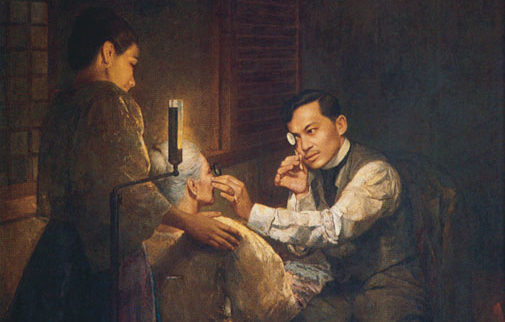Jose Rizal, the national hero of the Philippines, was born in 1861 during the Spanish colonial rule and grew up under the influence of Spanish culture. While in Europe, he wrote two satirical novels, “Touch Me Not” (“Noli Me Tangere”) and “The Reign of Greed” (“El Filibusterismo”), which criticized the Spanish and the Catholic clergy’s role in the Philippines’ rule. The novels became a rallying cry for Filipino independence.
Despite his literary achievements, Rizal chose to become an ophthalmologist due to personal reasons. He completed his medical education at the Universidad Central de Madrid in 1884 and received further training in ophthalmology from distinguished ophthalmologists in Madrid, Paris, and Heidelberg. In 1892, he successfully performed cataract surgery on his mother’s left eye in Hong Kong. However, the right eye, which was operated on while he was in exile in Dapitan, developed endophthalmitis in 1894, making him remark that he understood only then the prohibition on treating members of one’s family.
As one of the few ophthalmologists in Southeast Asia at the time, Dr. Rizal was sought after by patients from all over the country and even from abroad. He treated his mother, an Englishman who paid him Php 500, and others.
Rizal was arrested again in 1896 and charged with rebellion, sedition, and conspiracy, despite having no contact with the revolutionaries while in exile. He was convicted on all three charges and executed by firing squad three months after his arrest on December 30, 1896. His death marked the beginning of the struggle for Filipino independence.
In the 20th century, ophthalmology was initially replaced by the Eye Ear Nose and Throat (EENT) department of the Philippine General Hospital (PGH). However, Dr. Aristeo Rizal Ubaldo, a descendant of the national hero, served as the first Filipino chair of the EENT Department for almost four decades (1914-1951), and Philippine ophthalmology grew as more specialists were trained and organizations were established.
Today, there are three Rizal museums in the Philippines celebrating his life and work, including his contributions to ophthalmology and the struggle for independence.



